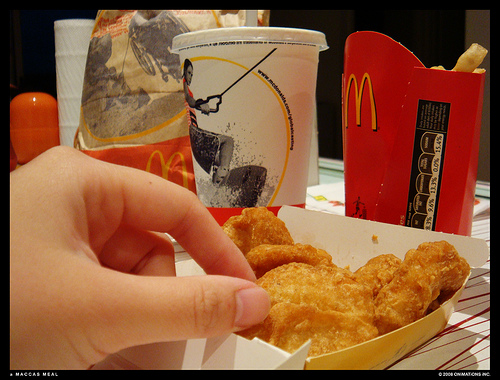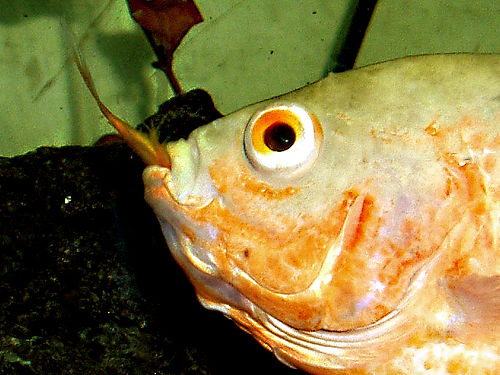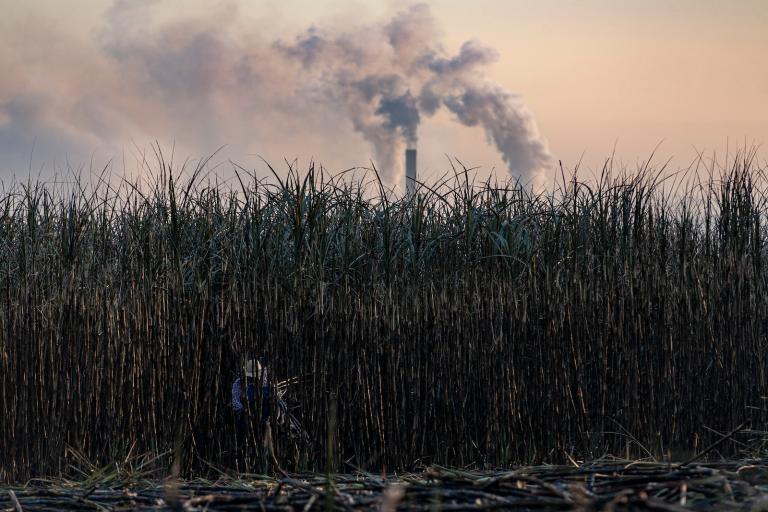Yesterday, I criticized New York Times food columnist Mark Bittman, a writer I admire, for calling for red snapper in a recipe, without noting that red snapper is severely overfished. Today, Bittman responded. Below find Mark’s response, with mine underneath.
In short, this was a screw-up, and for that I apologize, and thankful for the wake-up call. I’m (obviously, in general, I hope) committed to sustainability, but these things will happen despite my intentions and efforts – it’s a complicated situation, and I’m human.
Secure · Tax deductible · Takes 45 SecondsSecure · Tax deductible · Takes 45 SecondsFor those who are interested in more of my thinking on this subject:
I do believe that there is a way in which we can achieve decent management systems and establish sustainable fisheries, and that’s happening in isolated places throughout the world (as I noted in this piece in the Times a few months ago), but obviously that day is not here. Right now we have to be careful about what fish we chose, and in this piece I was not. (I thank Mr. Philpott for the gentle and even encouraging way in which he pointed this out.)
Seafood Watch, however, is managed by scientists – not cooks. (I use it, I recommend it, I even like it, but it has very definite limits.) If you look at “best choices” column on their site much of the fish is farm-raised, and much of the remainder is impossible to find in the real world. (Imagine: “Is that cod Pacific line caught?” What would the fishmonger respond? If he even knew the answer, would he be likely to say “No, it’s from the Atlantic, caught off Iceland by trawler?”)
In the recipe in question, the most viable alternative fish on that list – for my taste – is mackerel. Though I like mackerel, many people do not. Furthermore, it’s sometimes high in mercury, so there, perhaps, is a reason it’s not overfished, and a good reason not to recommend it. If I were to use that list as a guidepost to suggesting the best possible fish at every turn, there would be a rotation of something like mackerel, sardines, herring, anchovies, squid (I do not think either tuna or swordfish is sustainable at present, even though many people do) … and repeat.
But if enough people were to heed that advice, even those fish might soon be in short supply. I remember the disappearance of redfish, orange roughy, haddock and cod of course, and every other fish which was in “abundant” supply 20 years ago. There is not enough fish to go around without good management practices. (Striped bass was “lucky” enough to be contaminated by PCBs, so there was a near-complete ban fishing for a while, or it would have been endangered or even extinct by now.)
Equally important is the suggestion on the part of many that we choose farm-raised alternatives. But currently most of the aquaculture of fish and shrimp (not mollusks, however, in general) has nearly every disadvantage of industrially-raised chicken: it’s cruel, it fouls the environment, it gobbles up resources better used elsewhere, it does not have as good a nutritional profile as the wild stuff (not that there is wild chicken, but there are wild birds), and, relatively speaking, it tastes lousy. I’d rather eat tofu than tilapia, and I practice that. I’m also trying not to use farmed fish in any recipe I write.
None of this addresses my error; it merely reinforces that there is very little fish that is a) safe, b) worth eating, c) in currently adequate supply (which does not imply that that supply will be adequate a year from now).
It’s not simple. I write mainly about cooking. On the one hand I encourage people to cook at home, to use simple ingredients, to make conscious choices. On the other, I usually note – or try to – which choices are best from not only the flavor but the environmental perspective. Still, I no longer write “1 chicken, preferably free-range,” because I hope that most readers have gotten that message or can figure that out without me. Nor do I feel it’s up to me to tell people that there’s mercury in tuna. Some responsibility for sustainability and health – general “goodness” – must rest with the individual.
Again,this is not to excuse what happened in my column this week. I’m happy to be called out for that kind of sloppiness, I realize people take my words seriously, I’m glad they do, and I have to write as if that matters.
Look for a bigger piece in the Times addressing these issues in the not-too-distant future.
-Mark Bittman
Dear Mark,
Thanks for the thoughtful response. I think we’re pretty much on the same wavelength here: In an age of collapsing fisheries, consciously cooking with fish is tricky and requires lots of thought. That’s precisely the message I’d like to see high-profile food writers get across to the public. I understand your concern about restricting seafood recipes to “mackerel, sardines, herring, anchovies, squid.” I think one answer is the message that Sam Sifton almost — but not quite — got across in his recent piece on fish tacos: buy what your nearby fishermen are bringing in on their boats, since small-scale fishing communities tend to take much better care of the oceans than industrial fleets. To extend that message to folks who lives far from coasts: get to know a quality-obsessed fish-monger who has direct relationships with coastal fishermen — and learn to see fresh seafood as an occasional treat. A filet of Atlantic cod bought from an artisanal fisherman has a much smaller footprint than one bought at a supermarket counter sourced from a fleet. Moreover, I think there’s plenty more good work to be done teaching U.S. consumers that so-called “trash fish” — anchovies, sardines, etc. — are not only delicious, but also nutritionally desirable as well: virtually free of mercury and high in omega-3 fatty acids. They reproduce rapidly and stay small, resisting overfishing. It’s a mystery to me why so many folks find these treats unappetizing. And it’s nothing short of a crime that we’re feeding so much of this grand culinary resource to factory-farmed livestock, pets, and the insipid factory-farmed salmon that we both despise. You’re right that we potentially risk depleting “trash fish” stocks — but overfishing wouldn’t likely be a factor if the fish meal/fish oil industry could be reined in.
With best wishes,
Tom




